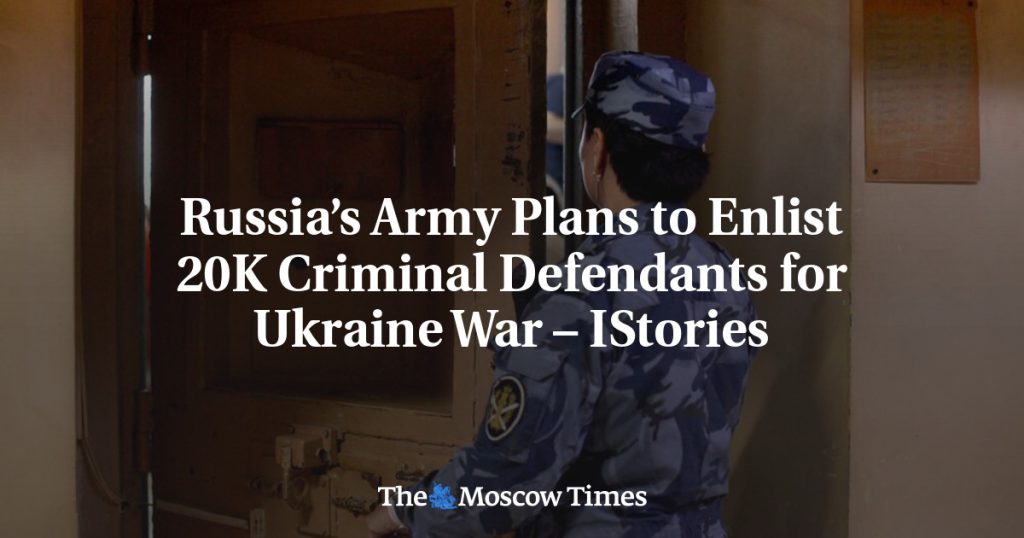The Russian Defense Ministry plans to enlist around 20,000 individuals currently held in pre-trial detention to fight in Ukraine, as reported by investigative news outlet IStories. Efforts are already underway to identify which defendants might be fit for military service, with an expected 40% to be taken. The plan involves selecting 100 defendants from each of Russia’s 210 pre-trial detention centers, with a total of 106,000 people currently held in custody, including those under investigation and convicted criminals. This move comes after legislation was passed allowing criminal defendants to serve in the military, closing a previous loophole that limited enlistment to convicted criminals and suspects under police investigation. The changes now await a final vote in the Federation Council before President Vladimir Putin is expected to sign it into law.
Sources revealed that authorities are targeting criminal defendants to avoid potential public unrest that may result from a new wave of mobilization. The Defense Ministry has reportedly turned to criminal defendants after running out of convicted prisoners willing to volunteer for the war in Ukraine. The shift towards enlisting those in pre-trial detention could provide the additional soldiers needed for the conflict. The plan to include these individuals in the military highlights the desperate measures being taken by the Russian government to bolster its forces in Ukraine. It also sheds light on the challenges faced by the Defense Ministry in recruiting enough troops for the ongoing conflict.
The decision to enlist individuals from pre-trial detention centers raises concerns about the potential exploitation of vulnerable populations for military purposes. There are ethical and legal implications involved in recruiting individuals who have not been convicted of a crime, and who may be facing uncertain legal outcomes. The use of criminal defendants to bolster military forces could lead to questions about the fairness and legality of such practices. This development also raises questions about the conditions under which these individuals are being recruited and whether they are being coerced or forced into military service without proper consent.
The reported plan to enlist individuals from pre-trial detention centers comes at a time when international attention is focused on the conflict in Ukraine and the implications of Russia’s actions. The decision to involve individuals who are not yet convicted of a crime in the military indicates the urgency felt by the Russian government to strengthen its forces in the conflict. The move could also have ramifications for the legal system in Russia, as it raises questions about the rights of individuals in pre-trial detention and the implications of involving them in military activities. This development adds another layer of complexity to an already challenging situation, with implications for both domestic and international audiences.
The use of criminal defendants to bolster military forces has sparked concern among human rights organizations and legal experts, who have raised questions about the legality and ethics of enlisting individuals in pre-trial detention. There are potential violations of individual rights and due process that could arise from recruiting individuals who are not yet convicted of a crime. The decision to target this population for military service raises broader questions about the treatment of individuals in the criminal justice system and the potential abuse of power by authorities. The move highlights the lengths to which the Russian government is willing to go to secure additional troops for the conflict in Ukraine, despite the potential consequences for the individuals involved.
In conclusion, the reported plan to enlist individuals from pre-trial detention centers to fight in Ukraine reflects the challenges faced by the Russian government in recruiting enough soldiers for the conflict. The decision to target criminal defendants for military service raises ethical, legal, and human rights concerns, as it involves individuals who have not yet been convicted of a crime. The move highlights the desperation felt by the Defense Ministry to strengthen its forces, as well as the potential risks of exploiting vulnerable populations for military purposes. The implications of this decision extend beyond the conflict in Ukraine, raising questions about the treatment of individuals in the criminal justice system and the broader impact on legal and ethical standards in Russia.


